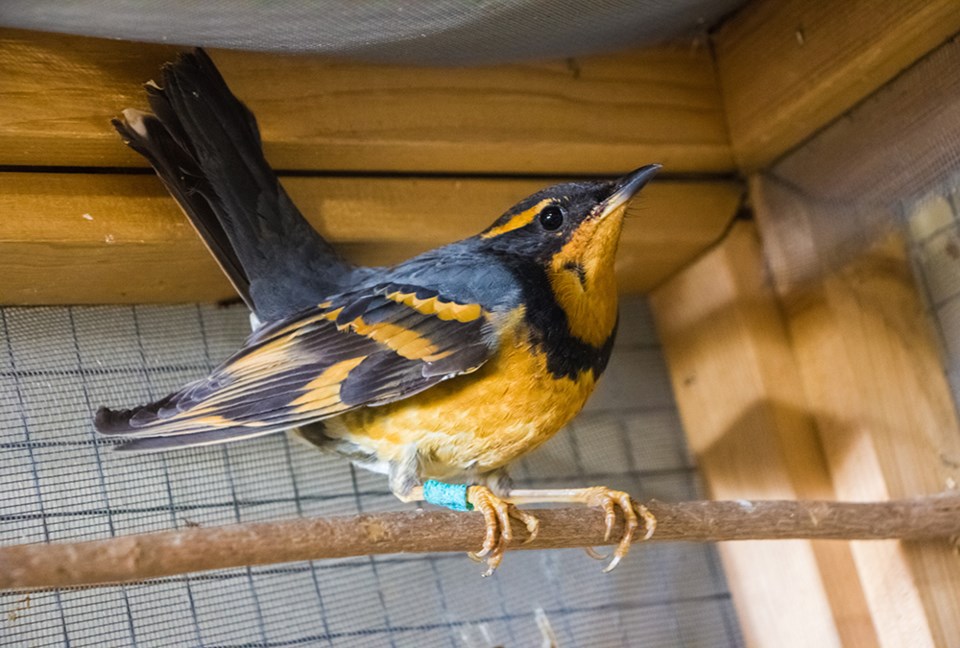Rescued from a snow bank near the airport, this deeply chilled varied thrush was taken to the warmth at Powell River Orphaned Wildlife Society.
Very thin, weak and hypothermic, it required time to recover. He was offered special pellets and mealworms, and gradually improved.
His next difficulty was a damaged foot, which was severely cramped by the snowy cold spell and made it difficult for him to perch. With time, he did his own physical therapy, opening and closing it and gradually gripping the perch; it slowly improved.
After several weeks, he was moved into the large flight cage at PROWLS with a fellow robin and continued to improve. The only time varied thrushes flock with robins is when they occasionally forage for berries or earthworms on lawns, otherwise they defer to them.
After six-plus weeks, the varied thrush was released near where it was found, the end of McLeod Road. With the logging happening around the qathet region, it is becoming increasingly difficult to find a secure and large enough forest where a safe release is possible.
The varied thrush population is in steep decline because they live in mature and old-growth forests. Seldom living in forest patches smaller than about 40 acres, logging and forest fragmentation can cause habitat loss that reduces their numbers.
In cities, varied thrushes are also vulnerable to collisions with cars and window strikes as well as predation by domestic and feral cats. They forage on the ground, periodically moving to higher perches in the understory to sing or move between foraging sites.
With their bright orange eyebrows and burnt orange throat and belly, they are easily identifiable.



